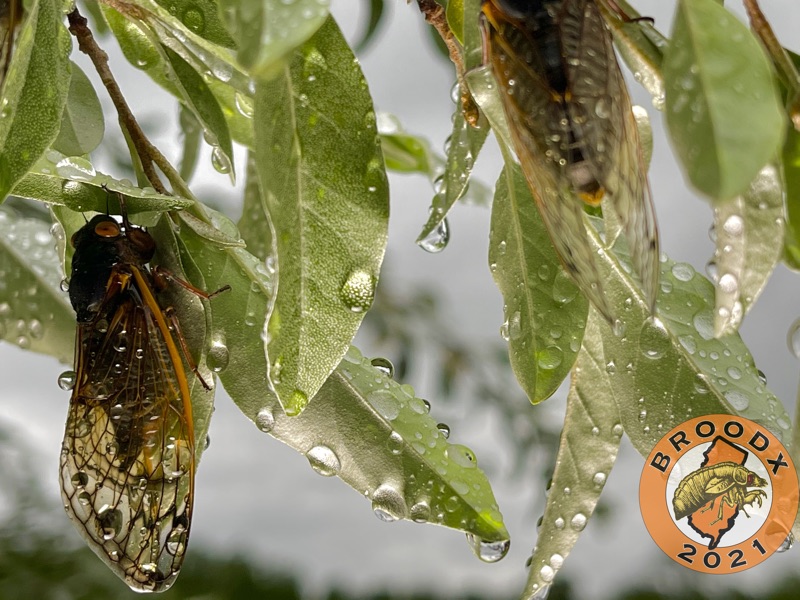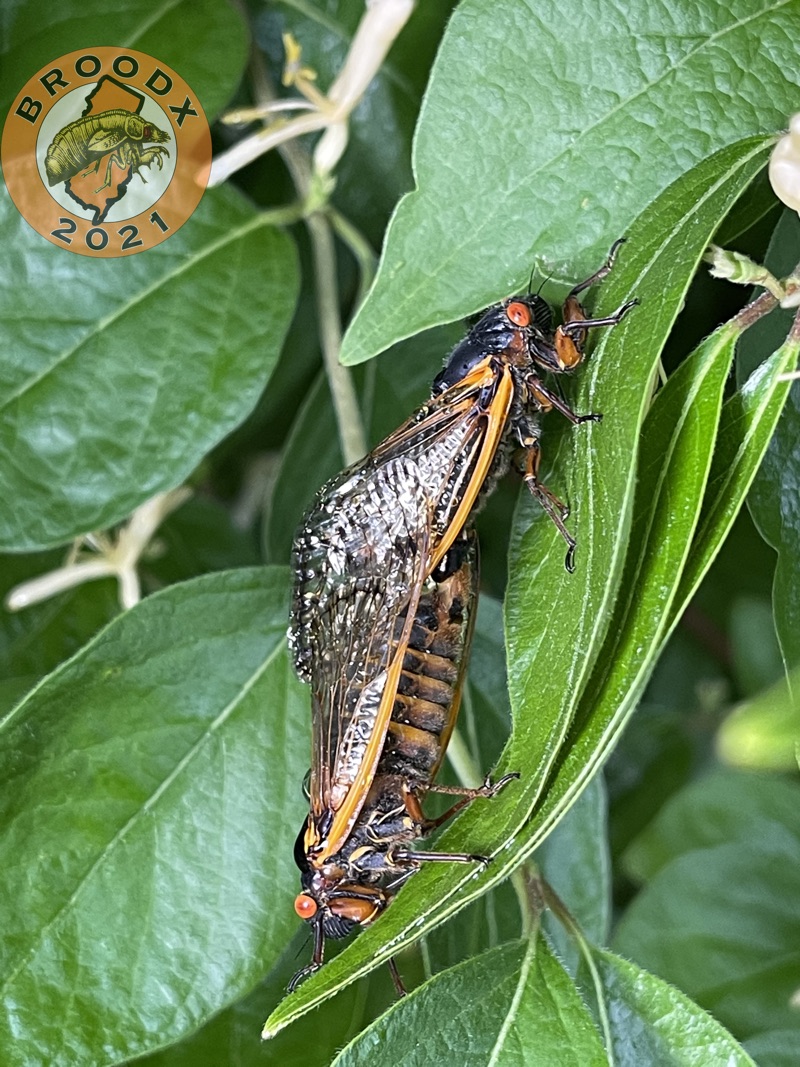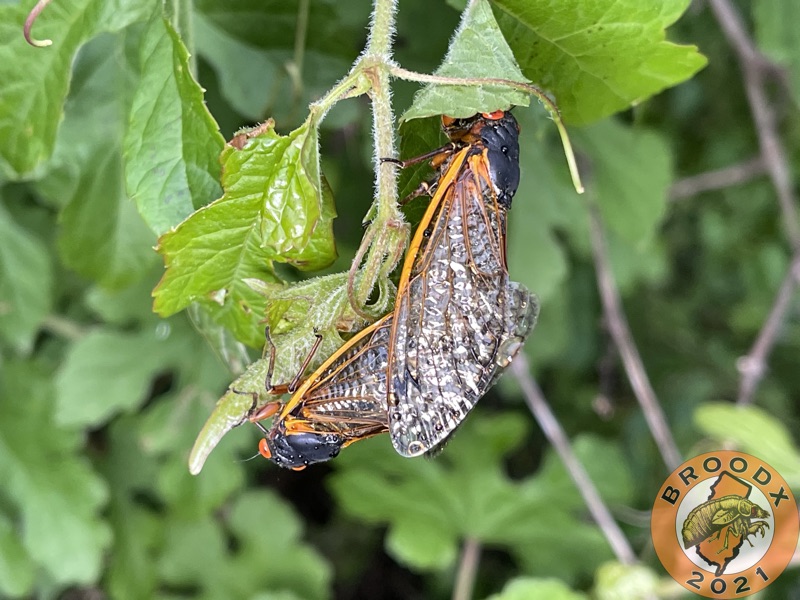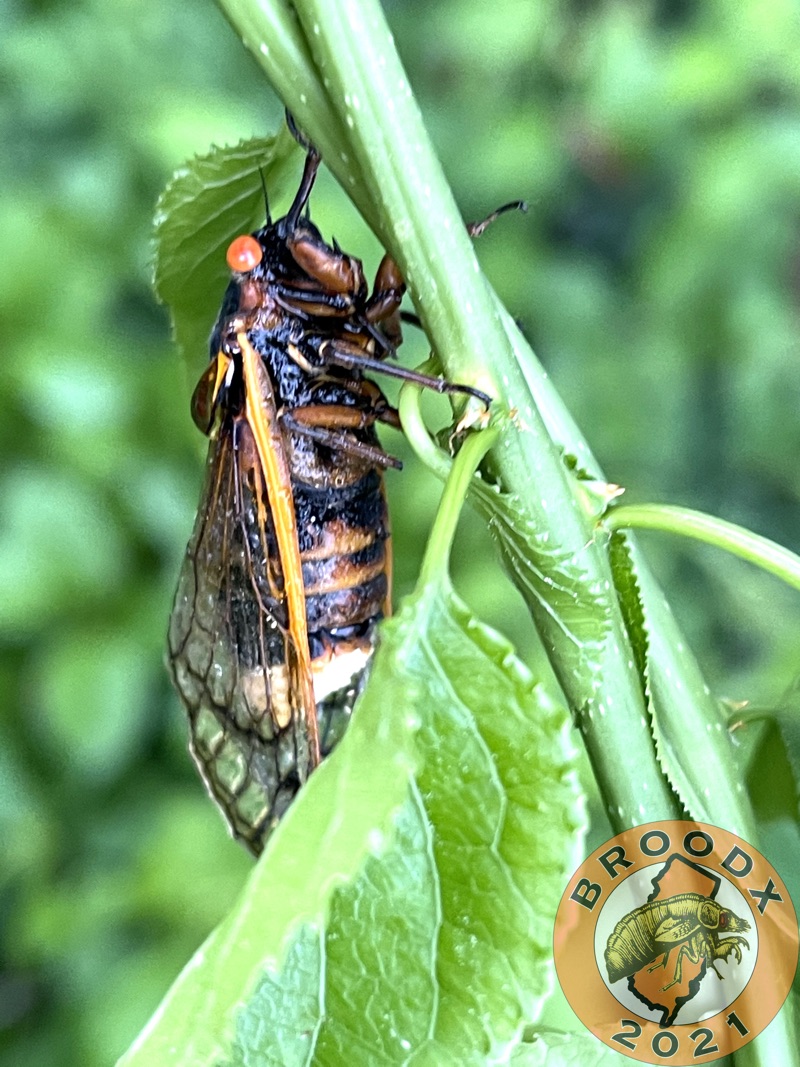Brood X has emerged in Princeton, New Jersey, but the weather is currently not great for cicadas: less than 50°F and rainy. Undaunted, I visited Princeton yesterday to observe Magicicada cicada behavior on a cold, rainy day.
I arrived at Princeton Battleground State Park around 3:30 PM and immediately head to the short trees and tall weeds, like honeysuckle, that line the perimeter of the park. I was pleased to see hundreds of cicadas clinging to the leaves, stems, and branches of the plants — seemingly without extra effort or discomfort. Many were weighted down by droplets of rain, which seemed to roll off their bodies and bead on their wings like translucent pearls.
Even though temperatures were below 50°F I did hear an occasional distress call, and saw plenty of cicadas mating — perhaps they started mating before the rain and cold weather began. No flying. No calls, chorusing, or wing flicks.
Other than thousands of seemingly healthy but (patient) cicadas hanging from vegetation, there were plenty of malformed cicadas on the trunks of larger trees, and piles of exuvia and corpses circling tree trunks. The air around trees stank like ammonia and rotting fat and meat — not unlike a dumpster behind a burger restaurant.
I saw mostly Magicicada septendecim and some Magicicada cassini. No apparent Magicicada septendecula. I saw just one M. Septendecim infected with Massospora cicadina fungus. While there was plenty of avian activity in the area, I did not see any birds or other creatures feast on the docile or dead cicada — maybe I scared them away — maybe their appetites were satiated.
Cicadas dripping with rain:

Cicadas mating:


M. Septendecim infected with Massospora cicadina fungus:
